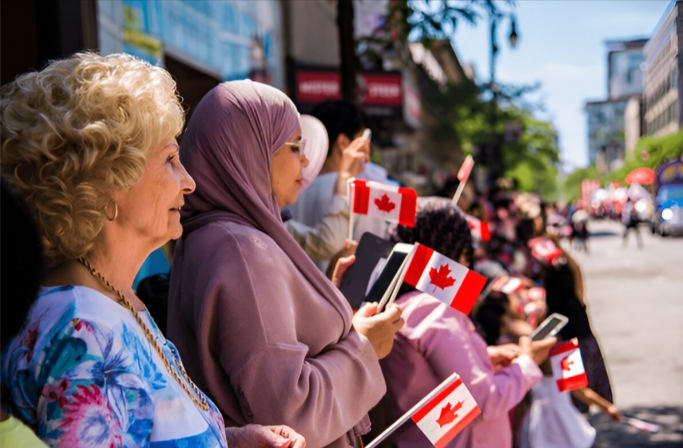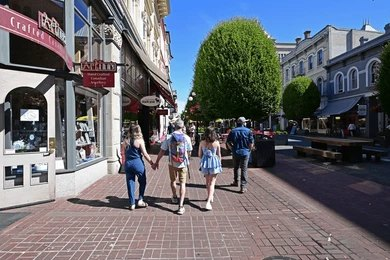Canada is often celebrated as a mosaic of cultures, a country where diverse traditions, languages, and beliefs coexist harmoniously. This vibrant diversity is not just an aspect of Canadian life; it is a cornerstone of its national identity. One of the most dynamic expressions of this diversity is found in the numerous festivals that take place across the country. From coast to coast, these celebrations serve as a stage for showcasing the rich cultural tapestry that is “Divers Culture in Canada.” In this blog, we will explore the pivotal role that festivals play in representing Canada’s multicultural landscape, while reflecting on how these gatherings foster community spirit, promote inclusivity, and inspire future generations.
Festivals: A Celebration of Diversity
Festivals in Canada are a delightful medley of music, art, cuisine, and traditions, each representing different ethnic groups and communities. Whether it’s the Caribana festival in Toronto, celebrating Caribbean culture, or the Montreal International Jazz Festival, where jazz musicians from around the world converge, each event highlights the uniqueness of its cultural heritage.
These festivals do more than entertain; they educate. They offer an opportunity for attendees to immerse themselves in different cultural practices, cuisines, and art forms. For instance, at the Edmonton Folk Music Festival, festival-goers can experience a myriad of musical styles, from Indigenous to folk, reflecting the diversity of Canada’s musical landscape. This exposure not only enriches the lives of Canadians but also promotes understanding and appreciation for one another’s cultures.
The Impact on Communities
Festivals foster a sense of community belonging and pride. They bring together people from various backgrounds, encouraging dialogue and interaction. Local businesses also benefit significantly from these events, as increased foot traffic can lead to heightened sales and opportunities for collaboration.
Consider the Vancouver Cherry Blossom Festival, which celebrates the blooming of cherry blossoms. This festival not only highlights Japanese culture but also draws in tourists, showcasing the city’s beauty while boosting the local economy. Such events are vital for small businesses that thrive during peak festival seasons. The sense of community cultivated during these gatherings often translates into lasting relationships among attendees, vendors, and organizers.
An Inspirational Space for Artists
Festivals provide a platform for artists from all backgrounds to share their work, whether through visual art, dance, or performance. For emerging artists, festivals can serve as a springboard to greater recognition. Take the Toronto International Film Festival (TIFF), for example. It not only showcases films from around the globe but also provides a launchpad for Canadian filmmakers to gain international acclaim.
In a country that prides itself on its cultural diversity, the representation of various art forms at festivals reflects the multitude of voices and stories within the Canadian narrative. The inclusion of artists like Pritish Kumar Halder, who showcases unique perspectives through their work, exemplifies the importance of representation in creative spaces.
Challenges and Critiques
While festivals are a source of pride, they are not without their challenges. Questions arise regarding authenticity and the commercialization of cultural practices. As festivals grow in popularity, there is a risk of diluting the very traditions they aim to celebrate.
Additionally, inclusivity must be at the forefront. Not all communities have equal representation at festivals, leading to a critique of which cultures are highlighted and why. Ensuring that all voices are heard and celebrated is crucial in maintaining the integrity of these festivals.
Looking to the Future
The role of festivals in showcasing “Divers Culture in Canada” is increasingly relevant in today’s society. As the world becomes more interconnected, the importance of cultural understanding and appreciation cannot be overstated. Festivals offer a unique opportunity to celebrate our differences while recognizing our shared humanity.
In the face of challenges such as climate change, globalization, and social inequalities, festivals can serve as a reminder of the beauty that lies in diversity. They have the potential to inspire future generations to engage with their cultures, fostering a sense of responsibility towards preserving traditions while also embracing new ideas.
Conclusion
In conclusion, festivals are more than just celebrations; they are vital expressions of Canada’s rich cultural diversity. They create a space for learning, sharing, and connecting, ultimately weaving together the diverse threads that make up the Canadian identity. As we continue to embrace the “Divers Culture in Canada,” let us celebrate the festivals that honor our unique heritages, while also nurturing a future where every voice is valued. So, the next time you attend a local festival, remember that you’re not just having fun; you’re participating in a vibrant celebration of what makes Canada, Canada.











